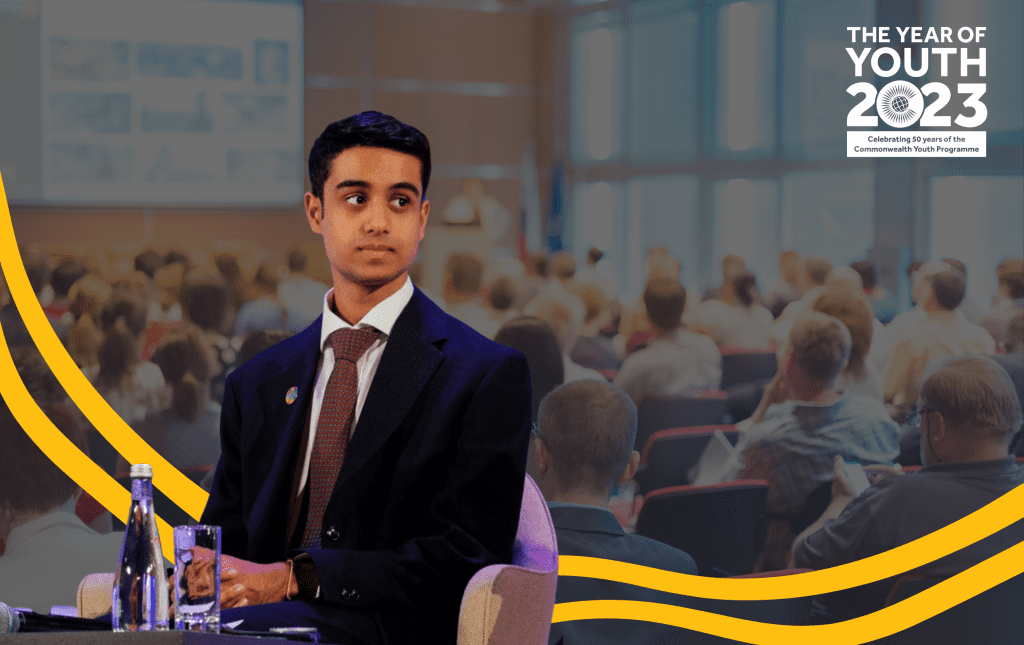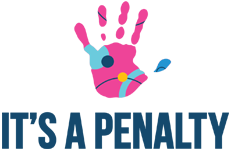Youth Co-Leadership: Transforming the Anti-Slavery Movement

Growing up, my parents and grandparents engrained the principles of selflessness and service to others in my life. I was brought up to contextualize my privilege and the resources I hold, and to use them to not only do good and serve others, but to play a part, to the best of my abilities in dismantling the very power structures that perpetuate and allow systems of inequalities, discrimination, marginalisation, and violence to thrive.
Whether it be here in the UK, or during my travels in India, I have seen the impacts of systems of injustice and inequality first-hand. I have spoken to and spent time with children who have close to nothing, and yet are the most content and selfless people I have ever met in my life. Thus, intrinsically, when I see, read, or hear about situations of injustice, oppression, discrimination or marginalisation, my initial reaction is to be proactive. Instinctively I will pick up books, listen to podcasts, and ask questions, learning, unlearning, and challenging my own thinking, the thinking of those in the spaces I occupy, and the systems that surround me.
So, when in 2016, at the age of 13, I first learnt that modern slavery and human trafficking still existed. I was shocked. I also discovered that this was not merely an issue happening in faraway countries and communities, but right here in the UK, on my doorstep. At school, we were taught about the Trans-Atlantic Slave Trade and its abolition, but I was completely unaware that those very exploitative practices continued to persist post-Abolition, deeply embedded in our socioeconomic and political systems and societies over centuries – hidden in plain sight.
As a curious teenager, I headed to the internet to understand the issue more. It was not long before I noticed that the information online was complex and difficult for me as a young person to engage with. The following week, I asked around 150 children in my cohort at school if they knew that modern slavery existed. Not one of them knew.
I also found that there were few substantive avenues for youth and children to get involved beyond raising awareness. While the climate action and gender equality movements included youth, albeit in a limited capacity, the mainstream anti-slavery movement seemed disconnected and isolated, almost in its own bubble.
It was a combination of these factors – the outrage of learning about modern slavery, seeing the disconnect between the movement and young people and acknowledging my own privileges – that I decided to dedicate my life’s work to supporting anti-slavery efforts.
I vividly remember sitting at home attempting to determine the best way to raise awareness about the issue among my peers and community. I decided to be ambitious and create a website, a centralised safe and accessible space for young people to learn about modern slavery, of course without understating the complexities of the issue. In doing so, I faced my first major challenges (which to this day I celebrate overcoming): disseminating overwhelming information into digestible content and coding a website. After months of research, speaking to experts in the field, including survivors, countless YouTube tutorials on how to use WordPress, and drafting and re-drafting pages of content, Stolen Dreams was born, in 2017.
We initially started as an awareness-raising communications platform, leveraging social media and the digital world to build a general consciousness as to what modern slavery is and how it manifests today. After a couple of years, in between juggling my GCSEs and A-Levels, I had a mindset shift. As young people, we can do more than awareness raising. In fact, we must do more – we must translate that awareness into concrete action, however big or small, at all levels.
Now I am 19 years old, currently writing this blog from my university library (I study International Relations at King’s College London), and Stolen Dreams has grown into an international youth-led collective. In partnership with several established organisations in the sector, we also launched the Youth For Freedom Collective, which is essentially a complimentary Stolen Dreams 2.0. Both of these collectives are home to an international group of young people who are determined to drive concrete action against modern slavery in all its forms, wherever it may occur, through education, advocacy and policy. Our projects include educational outreach in schools, providing back-end support to young people who are engaged in their own grassroots anti-slavery initiatives, collaborating with established organizations and intergenerational partners in the sector, and providing policy advice to local governments, international and regional intergovernmental organizations, and their Member States.
I am incredibly fortunate to get to spend much of my time with survivors, organizations, policymakers, academics, writers and educators, learning from the best minds in the world on these issues. Since 2016, I have travelled deep into the anti-slavery movement, always learning at speed, and recognising intersectionalities.
Essentially, we are working every day to promote youth co-creation, co-leadership and co-ownership within the anti-modern slavery movement, to ensure young people are centred across all anti-slavery efforts and decision-making spaces. We exist to act as a unifying force to facilitate a bridge to the gap between youth and the existing anti-modern slavery movement; to understand the role we as youth play, and how we can best support efforts as valued partners.
It is only through seeing young people as more than beneficiaries of change, and rather, as valued partners and co-leaders at the decision-making table, that we can see greater progress towards not only ending modern slavery but more broadly in terms of ensuring every human being, including future generations, are truly born free and equal in dignity and rights.
It is these experiences and fundamental principles of youth co-leadership that we also take to the United Nations and centre in the mandates that we hold.
My first interaction with the UN system was when I was invited to speak at a parallel event during the UN’s 65th Commission on the Status of Women, which is the largest intergovernmental gathering globally to convene, discuss and advance gender equality. I spoke on a virtual panel about combating human trafficking, especially of women and children, providing a youth perspective to the conversation. It was during this UN event that I met a group of incredible young activists who were supporting UN Women in engaging more young people in the Generation Equality Forums that were being hosted to promote multi-stakeholder action to advance gender equality.
Since then, I have been engaged in the UN system in various capacities, holding several mandates that span gender equality, organised crime, human trafficking, migrant smuggling, the illicit trade in firearms and more.
Ultimately, through these positions, we are working with fellow youth colleagues, and intergenerational allies, to promote young feminist leadership and shift systemic power imbalances and ensure that youth, in all our diversity, especially young people facing multiple and intersecting forms of discrimination and marginalization, are being centred as valued partners, and as co-leaders of UN deliberative decision-making processes, across the entire UN system.
I have had the privilege of speaking at many UN dialogues, forums, summits, and intergovernmental meetings. While it is incredibly humbling, it is a tremendous responsibility and can be intimidating, especially when you are often the youngest person in the room or on the panel. Speaking directly to decision-makers whether it be behind closed doors or in public arenas means that you are responsible for conveying authentic messages, evidence-informed and co-created with or by youth, especially by the young people who are directly impacted by the topic you are speaking about.
However, it is crucial to understand that speaking at the UN means going beyond delivering a statement or intervention. It means proactively following up with stakeholders, holding relevant people accountable, and localizing that information by providing transparent communication and feedback to the grassroots youth and constituencies you represent or are part of. While working in the UN space, we must not disconnect from what is happening on the frontlines; bringing the UN and its values, as well as the implementation of intergovernmental outcomes, to the community level is crucial.
Over the years, and despite progress to date, it has been made clear that young people are an essential missing piece in many decision-making spaces. Our effective, and meaningful participation, as co-creators, co-leaders, and co-owners, across all efforts, and at all levels is a prerequisite to realising the full potential of the 2030 Sustainable Development Goals.
It is time for stakeholders to substantively invest in, amplify and support youth leadership, which starts by recognising our value, expertise, and the mutual benefits we bring to the table.
There is extraordinary power in including young people in intergenerational collaboration and leadership. Through collaboration and by recognising our contributions, we collectively embark on a journey of learning, growth, and strengthening and building our capacity to drive positive change.
When it comes to eradicating modern slavery, we as young people are already working on the frontlines, driving change from the local to international levels, and through harnessing our unique expertise, enhanced by our determination, proactivity, and innovation, we can support catalysing long-term and impactful action
It is time to transform the anti-slavery movement and realise its full potential by investing in the meaningful inclusion, engagement and participation of young people, as valued and equal partners – sharing space and sharing power.
Written by Ishaan Shah
International Human Rights Young Leader
Social Media Profile @IshaanShahUK
